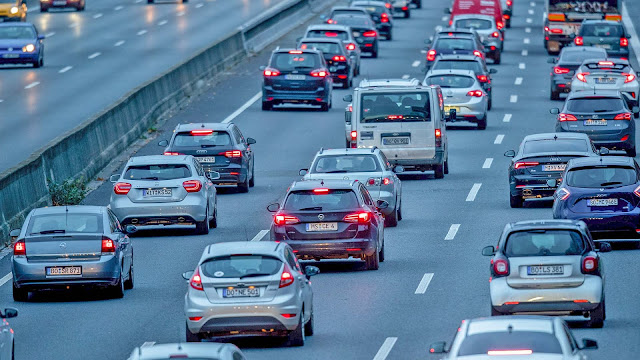After months of deliberation by political bodies and the auto industry, the European Union's 27 member nations have agreed on laws that would end the sale of new combustion-engined cars by 2035.
On Wednesday, members of the EU Parliament ended a grueling 16 hours of negotiations in Luxembourg with the formal approval of measures that will affect passenger cars and light commercial vehicles during the expedited transition from gasoline and diesel to electric.The ban is just one of many measures aimed at reducing CO2 emissions across the EU, effectively cutting 100 percent of tailpipe pollutants from new cars by the middle of the next decade.
Plans to ban the combustion engine in Europe have been talked about for some time. The latest proposal was originally made in 2021 but was met with ongoing resistance by several EU member countries.
Germany, for example, recently said it would not agree to a ban on combustion engine sales and proposed utilizing synthetic fuels to circumvent the environmental impact.
The ban was also denounced by the Czech Republic and some high-ranking French officials.
When the Italian government suggested that some of the world's most revered exotic brands—namely Ferrari and Lamborghini—be exempted from the embargo, Porsche CEO Oliver Blume chimed in to condemn the idea of any exceptions despite the company investing in a synthetic fuel producer earlier this year. Amendment 121, or as it's better known, the "Ferrari Amendment," will relax the requirements for low-volume brands that produce under 10,000 vehicles annually.
The so-called niche automakers won't be held to the same interim emission reduction targets as other larger automakers and will effectively be granted an extension until the de facto ban goes into effect in 2035. Most notably, this benefits luxury brands like Ferrari, Lamborghini, Rolls-Royce, and others.
Both Germany and Italy petitioned the council to consider future provisions for carbon-neutral alternative energy sources.
When the Italian government suggested that some of the world's most revered exotic brands—namely Ferrari and Lamborghini—be exempted from the embargo, Porsche CEO Oliver Blume chimed in to condemn the idea of any exceptions despite the company investing in a synthetic fuel producer earlier this year. Amendment 121, or as it's better known, the "Ferrari Amendment," will relax the requirements for low-volume brands that produce under 10,000 vehicles annually.
The so-called niche automakers won't be held to the same interim emission reduction targets as other larger automakers and will effectively be granted an extension until the de facto ban goes into effect in 2035. Most notably, this benefits luxury brands like Ferrari, Lamborghini, Rolls-Royce, and others.
Both Germany and Italy petitioned the council to consider future provisions for carbon-neutral alternative energy sources.
The EU reportedly agreed to consider the use of alternative combustibles, such as synthetic fuels and hydrogen, though limited details in the legislation have only spread uncertainty for the automakers that may plan to make use of these fuels.
This won't be the biggest obstacle for automakers, however. Instead, it will be securing the supplies necessary for battery production. Volkswagen CFO Arno Antlitz says that the automaker foresees a challenge in manufacturing enough batteries by 2035 to make the ban sustainable.
This won't be the biggest obstacle for automakers, however. Instead, it will be securing the supplies necessary for battery production. Volkswagen CFO Arno Antlitz says that the automaker foresees a challenge in manufacturing enough batteries by 2035 to make the ban sustainable.
"It's a challenging goal. We think it's doable," said Antlitz in an interview with Reuters. "The most challenging topic is not ramping up the car plants. The most challenging topic will be ramping up the battery supply chain."
The French Minister of Ecological Transition, Agnes Pannier-Runacher, acknowledged that the ban posed "a big challenge" for the auto industry; however, he found that the transition to electrification was a "necessity" given that both the U.S. and China have heavily invested in electrification as the future of personal transport. thedrive.com - link - Rob Stumpf - link - more like this (EU) - link - more like this (ev batteries) - link
The French Minister of Ecological Transition, Agnes Pannier-Runacher, acknowledged that the ban posed "a big challenge" for the auto industry; however, he found that the transition to electrification was a "necessity" given that both the U.S. and China have heavily invested in electrification as the future of personal transport. thedrive.com - link - Rob Stumpf - link - more like this (EU) - link - more like this (ev batteries) - link

No comments:
Post a Comment